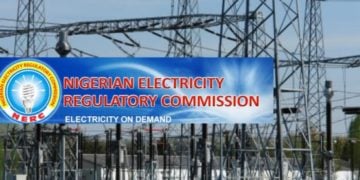Nigeria’s increasing reliance on asset sales, and multilateral loans for debt financing has raised alarms over the sustainability of its public debt stock
The current public debt stands at approximately N135 trillion, with predictions suggesting it could rise to N150 trillion by year-end due to ongoing fiscal deficits.
Experts warn that this strategy could exacerbate fiscal vulnerabilities and limit the country’s ability to fund critical infrastructure and social services.
A recent report highlights that Nigeria’s debt servicing costs are projected to rise by 26.7 per cent between 2025 and 2027, consuming a significant portion of national revenue.
In a new economic outlook report economists at Kreston Pedabo, while forecasting modest growth for Nigeria in 2025 but warned of significant structural and financial challenges that could hinder economic stability.
The report, co-authored by the firm’s Senior Associate for Financial Advisory & Risk Management, Oreofe Olamoyegun; Lead for Management Consulting, Tyna Adediran; Partner for Financial Advisory & Risk Management, Nosa Ogbebor; and Senior Partner for Tax Compliance & Advisory, Killian Khanoba, highlights key risks such as rising inflation, a depreciating naira, and a mounting debt burden.
According to the report, Nigeria’s deficit financing strategy—relying on debt, asset sales, and multilateral loans—raises concerns about the sustainability of the country’s growing debt load.
The report points to an eight per cent country default spread, a signal of elevated investor caution regarding Nigeria’s creditworthiness.
Rising public debt and the high cost of servicing these obligations could further restrict the government’s ability to invest in critical infrastructure and social services.
Persistent insecurity, infrastructure deficits, and corruption remain significant barriers to economic reforms and growth initiatives.
Inflationary pressures continue to erode purchasing power, increase operational costs, and dampen consumer demand, particularly in the financial services sector.
The depreciation of the naira is another major concern, as it discourages investment, exacerbates foreign exchange shortages, and disrupts trade.
The oil sector, a key driver of Nigeria’s economy, faces continued risks from oil theft, pipeline vandalism, and global price fluctuations, which threaten revenue recovery. However, the government’s renewed focus on security in oil-producing regions and ongoing reforms in the petroleum sector could help stabilise production and improve revenue generation.
In the non-oil sector, high production costs, limited access to credit, and inflationary pressures could stifle growth in agriculture, manufacturing, and services.
The report emphasises the need for policies that incentivise local manufacturing, modernise agricultural practices, and enhance digital infrastructure to support sustainable growth in these sectors.
Meanwhile, the capital market is expected to see moderate growth in 2025, driven by increased investor confidence following ongoing reforms and the issuance of local bonds to finance infrastructure projects. However, rising domestic borrowing costs and foreign portfolio outflows remain key risks.
The report underscores the need for strategic policies that enhance market liquidity and attract foreign direct investment to sustain market performance.
To mitigate these risks, the Pedabo report calls for targeted policy measures to strengthen economic resilience and drive inclusive growth. It advocates for greater public-private partnerships (PPPs) in infrastructure development, supported by a transparent regulatory framework and government guarantees.
The report also stresses the importance of export diversification, recommending strengthened international trade agreements, targeted export promotion strategies, and incentives for import substitution to improve Nigeria’s trade balance and foreign exchange earnings.
In the energy and infrastructure sectors, Pedabo highlights the need for investments in renewable energy, refinery and pipeline upgrades, and expanded transport networks to reduce production and distribution costs.
A renewed focus on industrialisation through subsidy programmes, tax incentives, and the development of Special Economic Zones (SEZs) is also recommended. These measures, according to the report, would help shield vulnerable populations from inflation while boosting domestic industries and reducing dependency on imports.
Technology and innovation are also identified as critical growth areas.
The report calls for increased support for tech startups, broadband infrastructure investment, and digital literacy programmes to drive Nigeria’s digital economy and improve internet accessibility.
In the agriculture sector, Pedabo recommends scaling up initiatives such as the Anchor Borrowers’ Programme (ABP) and strengthening agro-processing zones to boost domestic food production, mitigate food inflation, and reduce reliance on imports.





